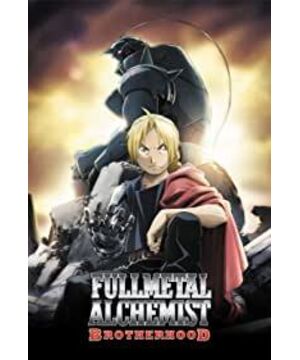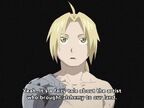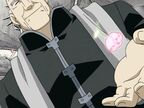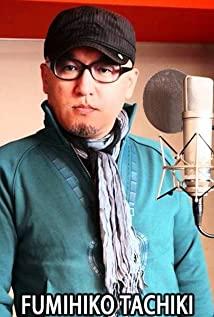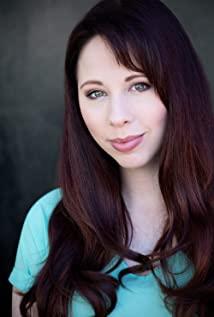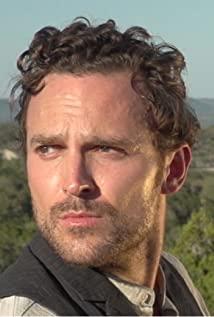Arakawa Hiroshi discusses many issues in this work in a rather sincere way. Therefore, sincerity is because she focuses on the narrative itself, "speaking a complete story", and avoids the cleverness and overindoctrination of Ma Zhizhun and Xu Yuanxuan. And among these many questions, three have caught my attention the most: The
first is the question of greed. In the 46th episode of the animation, when Edward proposed that "too much desire is bad", he was refuted by the android Greed (greed). He said, "Wanting to see the dead, wanting money, wanting women, and wanting to protect the world are all desires." Desires do not distinguish between high and low in him, while human beings are "self-righteous and rank desires". become so troublesome. This initially leads to the topic of ethics starting from Socrates, that is, what position and role does reason play in emotion and ethics.
In the eyes of many, represented by Edward, "temperance" from reason is still a virtue. In the life of man's pursuit of his desires, he should take rationality as the measure (classify various desires ethically), and take the "middle way" of harmony and moderation as the benchmark, through rationality - at least the unity of reason and emotion self-realization. This is also what Nietzsche called the "ideal of asceticism" since ancient times, which to a large extent caused the pain, bondage and distortion of the will to live in the practice of human ethics. It is closely related to the question of moral good and evil and the state of human freedom, which will be mentioned below, and Arakawa Hiroshi did not give a clear answer-maybe she can't give it, or she doesn't want to give it, after all, this is still the case so far. A controversial topic, and I insist that emotion is the only measure and value standard of ethics and practical reason.
Then there is the question of the whole person. Arakawa Hiroshi focuses on the "seven deadly sins" of people. The so-called "seven deadly sins", namely arrogance, jealousy, anger, laziness, greed, gluttony, and lust, were originally the seven most serious sins of human beings proposed by Catholic theologians, but in fact, they are also the seven very basic human sins. emotion. In the work, the villain in the bottle approaches the truth by stripping these seven emotions and becomes a "perfect life"; while Arakawa refutes it through the mouth of Van Hohenheim, and believes that as long as we ignore the seven emotions Any one of them will become incomprehensible to human beings.
This view is actually very modern ethics. In the past when the ideal of asceticism was regarded as the only ethical point of view, the Seven Deadly Sins were of course intemperate, and therefore could only be branded as evil and abhorred by the world. However, times have changed, and modern philosophers have found that: overemphasizing human rationality will only make people mentally distorted and incomplete. Modern philosophy starting from Nietzsche fully affirms the value of the other side of the human being, and through the excavation of the spirit of Dionysus, it proves to us that the Socratic pursuit is only one side of the matter in the pre-classical era. Then the so-called seven deadly sins before, after the human beings continue to grow and deepen their understanding of themselves, they may not be able to become seven new "virtues".
The last point is actually a complex issue. It could be called "freedom", but it has some limitations, perhaps better described as "how one should live". Throughout the story, truth has brought tragedy to many lives - most notably The Little Man in a Bottle and Edward. Their paranoia about the truth caused the deviation and torture of their respective life trajectories. The villain in the bottle was originally only after freedom, but the expansion of knowledge made it terrible and crazy; Edward tried to improve the situation of life by understanding the truth - not life itself.
They all failed. The villain in the bottle got the most tragic ending. He returned to the side of the truth, but he lost the freedom he once gained; while Edward pulled back from the precipice and returned to a happy life by surrendering his paranoia to the truth. This contrast may reflect Hiroshi Arakawa's choice on this issue: that is, the pursuit of a free state of life should not point to truth, but should turn to life itself, otherwise it will lead to tragedy. And the path chosen by the two brothers in the end may also hint at this: what really benefits life is not the so-called truth, but the thinking of different peoples in the East and the West on life issues. Only by condensing the spiritual wealth of all human beings can human beings as "all" be compatible with each other, and those who are "one" can also live a free and happy life.
Finally, I will tell you a joke: when the steelmaking animation ended in 2004, I discussed with Mr. F and concluded that it may be difficult to have such a brilliant animation work in 20 years. In less than five years, our predictions came to nothing. this is life.
View more about Fullmetal Alchemist: Brotherhood reviews


